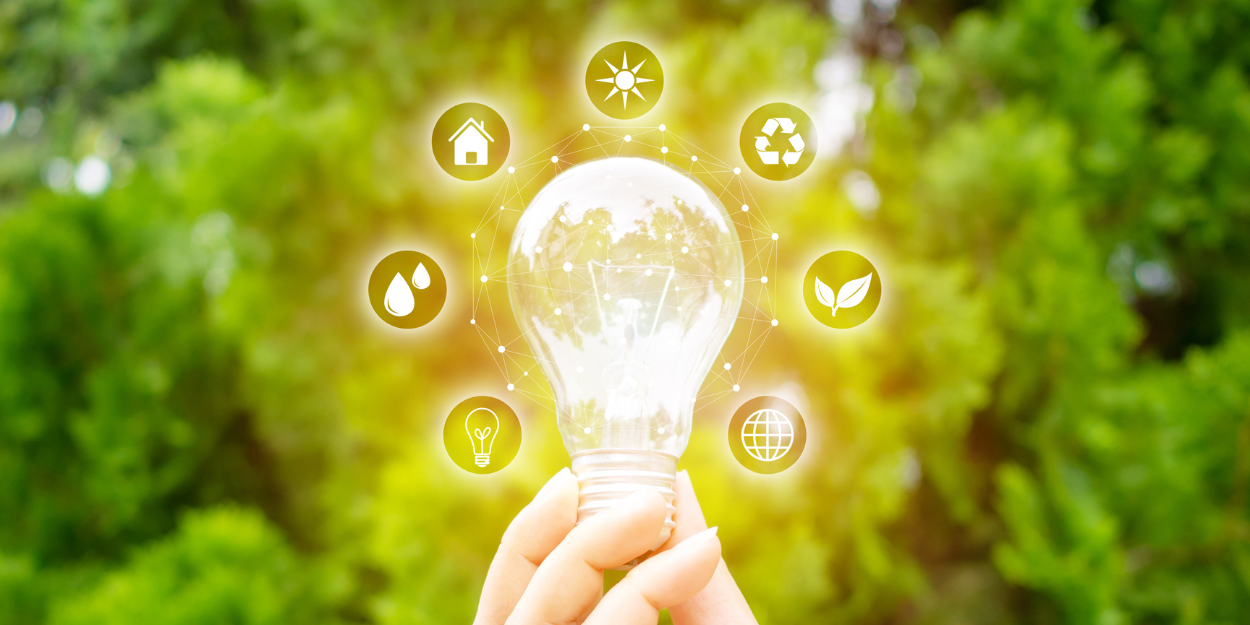Saving money, increasing comfort, and boosting home value—energy-efficient upgrades check all the right boxes for today’s homeowners. Whether you’re settling into your first home or looking to maximize the long-term value of a recent move, smart energy improvements offer a strong return on investment while making everyday life better.
In this guide, we’ll walk through practical, high-impact energy-efficient home upgrades that can help you lower your bills, increase your home’s appeal, and live more sustainably.
Why Energy Efficiency Matters for Homeowners
Energy-efficient improvements aren’t just about helping the environment (though that’s a great bonus). They also:
Lower monthly utility bills
Increase resale value and buyer appeal
Unlock potential tax credits and rebates
Reduce maintenance and replacement costs
Create a more comfortable, livable home
Studies show that energy-efficient homes sell faster and for more money than comparable, non-upgraded homes. Plus, the savings add up month after month—helping offset the cost of upgrades over time.
Top Energy-Efficient Home Upgrades That Pay Off
Not every upgrade requires a full remodel. Some of the most cost-effective energy improvements are easy, quick, and affordable.
Smart Thermostats
Installing a programmable or smart thermostat is one of the easiest and fastest ways to cut energy costs. Smart thermostats like Nest or Ecobee learn your patterns and adjust heating and cooling automatically, saving homeowners up to 10–12% on heating and 15% on cooling annually.
The best part? Many utility companies offer rebates for installing a smart thermostat, making your payback period even faster.
LED Lighting Upgrades
Replacing old incandescent bulbs with LEDs can reduce your lighting energy usage by up to 80%. LED bulbs also last 15–25 times longer, meaning fewer replacements and less waste.
An entire home’s lighting system can often be upgraded in a day, giving you instant savings with minimal upfront cost.
High-Efficiency HVAC Systems
If your furnace, air conditioner, or heat pump is more than 10–15 years old, upgrading to a high-efficiency system can drastically reduce your energy consumption. Look for systems with a high SEER (Seasonal Energy Efficiency Ratio) rating for cooling and a high AFUE (Annual Fuel Utilization Efficiency) rating for heating.
While HVAC replacement is a larger investment, energy savings and modern comfort levels often justify the cost—especially if your current system is nearing the end of its lifespan.
Energy-Efficient Windows and Doors
Old, drafty windows and doors can be a major source of energy loss. Upgrading to ENERGY STAR-certified models improves insulation, reduces heating and cooling costs, and enhances overall comfort.
Proper installation is key—air leaks around frames can cancel out efficiency gains, so be sure to work with an experienced installer.
Improved Insulation and Air Sealing
Many homes—especially older ones—suffer from insufficient insulation and hidden air leaks. Common problem areas include attics, crawl spaces, basements, and around windows and doors.
A professional energy audit can identify these gaps. Adding insulation and sealing leaks can result in up to 15% savings on total energy costs annually.
Tankless Water Heaters
Traditional water heaters maintain a tank of hot water 24/7—using energy even when you’re not home. Tankless models heat water on demand, reducing standby losses and energy use.
Tankless water heaters also tend to last longer (20+ years) than traditional tanks, making them a smart long-term investment for many households.
Bonus Upgrades for Maximum Efficiency
For homeowners planning major projects or longer-term savings, consider these bonus upgrades:
Solar Panels
Solar installations can dramatically reduce or eliminate your electricity bill, depending on system size and home orientation. While upfront costs are higher, federal tax credits and local incentives can offset a significant portion.
Solar is especially attractive for homeowners planning to stay put for at least 7–10 years.
Energy-Efficient Appliances
Upgrading appliances like refrigerators, dishwashers, washers, and dryers to ENERGY STAR models can lead to immediate savings.
Refrigerators account for up to 13% of a home's energy use.
Washers and dryers with energy-saving features cut water and power consumption.
Dishwashers built for efficiency use less water while getting dishes cleaner.
Many utility companies also offer cash-back rebates for upgrading appliances, so check local programs before making purchases.
What Improvements Make Sense Based on Your Home?
Not every home needs the same upgrades. A quick guide:
Newer homes (built post-2010) may already have strong baseline efficiency but can benefit from smart thermostats, LEDs, and appliance upgrades.
Older homes (built pre-2000) may see major benefits from insulation, windows, HVAC updates, and sealing air leaks.
Regional factors matter—homes in hot climates benefit more from solar and HVAC upgrades, while homes in colder regions prioritize insulation and heating efficiency.
A professional home energy audit can pinpoint where your home is losing energy and prioritize upgrades for the best return on investment.
How Lockstep Realty Helps Buyers and Sellers Maximize Efficiency
At Lockstep Realty, brokered by eXp Realty, we understand that energy efficiency isn’t just a trend—it’s a long-term advantage. Whether you're buying, selling, or planning future improvements, we help clients:
Identify homes with existing energy-efficient features (and value them properly)
Advise sellers on simple, affordable upgrades that can increase listing appeal and value
Connect buyers and sellers to trusted contractors for energy audits, insulation, solar, and window upgrades
Navigate incentives like federal tax credits and local utility rebates for energy-saving projects
Our team is committed to helping you make smart investments that pay off now—and in the future.
FAQs – Energy-Efficient Home Upgrades
What are the easiest energy-efficient upgrades for a new homeowner?
Installing smart thermostats, swapping out light bulbs for LEDs, and adding weather stripping around doors and windows are low-cost, high-impact first steps.
How much can smart thermostats really save?
Studies show smart thermostats can cut heating and cooling costs by up to 15% annually, depending on your home and usage patterns.
Are energy-efficient upgrades worth it when selling a home?
Yes. Energy-efficient homes often sell faster and for more money. Buyers increasingly value lower operating costs and modernized systems.
Do energy upgrades qualify for tax credits?
Many do. Homeowners can claim credits for upgrades like solar panels, insulation improvements, energy-efficient HVAC systems, and more.
https://www.energystar.gov/about/federal_tax_credits
How do I know which improvements are right for my house?
Start with a home energy audit. Professionals can identify where your home is losing energy and recommend improvements that deliver the biggest returns.
Final Thoughts – Smart Upgrades, Smarter Savings
Energy-efficient home upgrades aren’t just about sustainability—they’re about creating a better life inside your home while building long-term financial value. Whether you start with a smart thermostat or plan for bigger improvements like HVAC upgrades or solar, every small step adds up.
At Lockstep Realty, we’re here to help you make smart, strategic decisions that benefit your wallet, your comfort, and your future.


